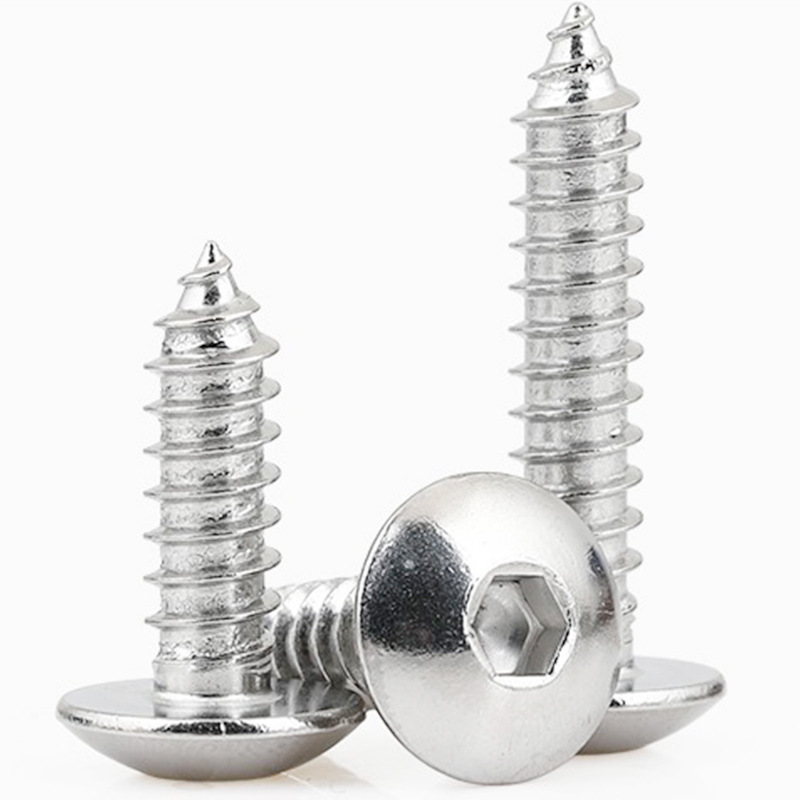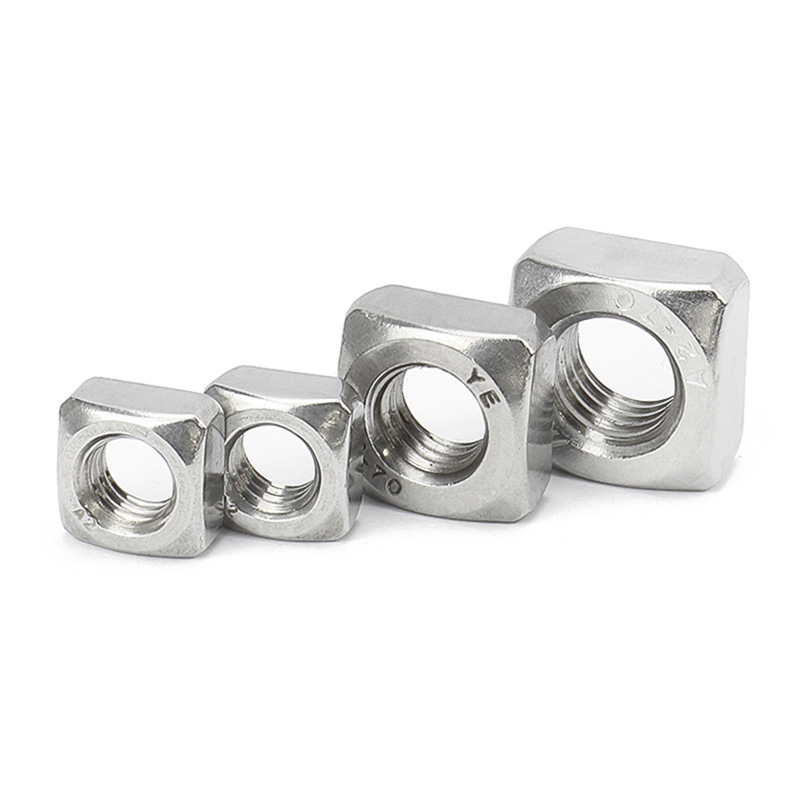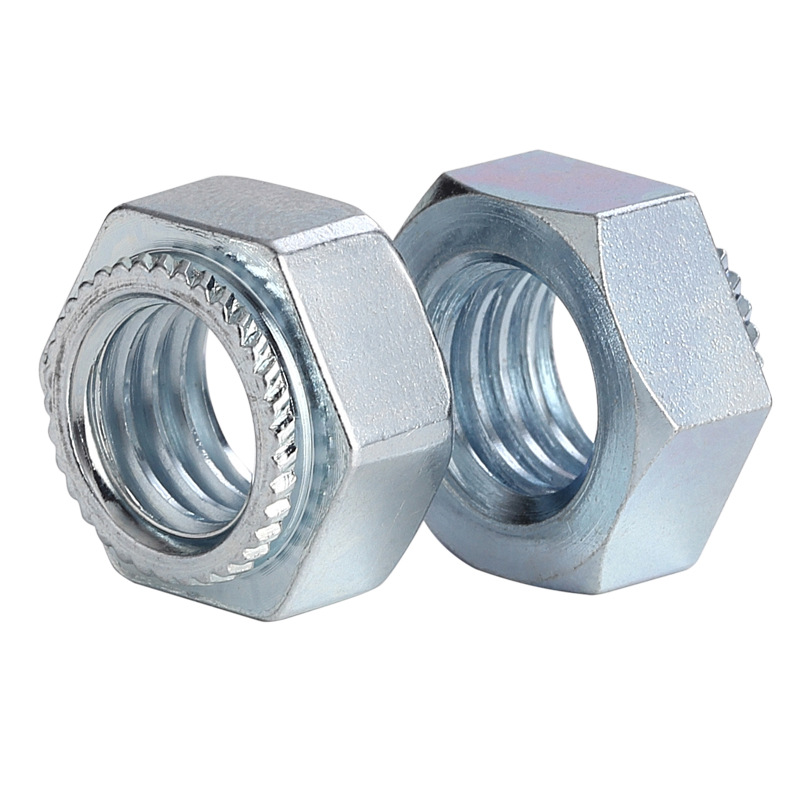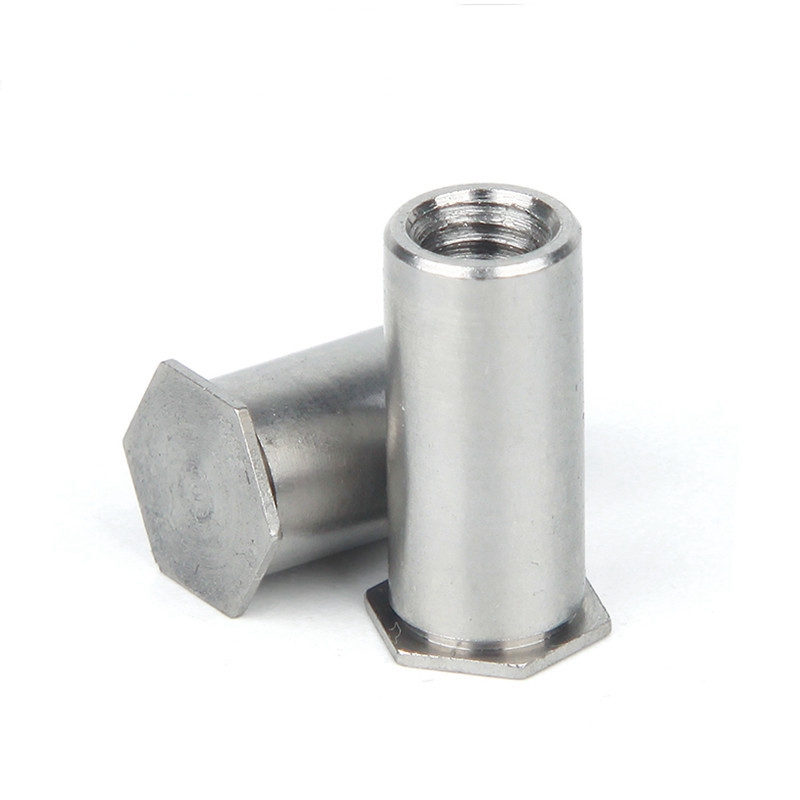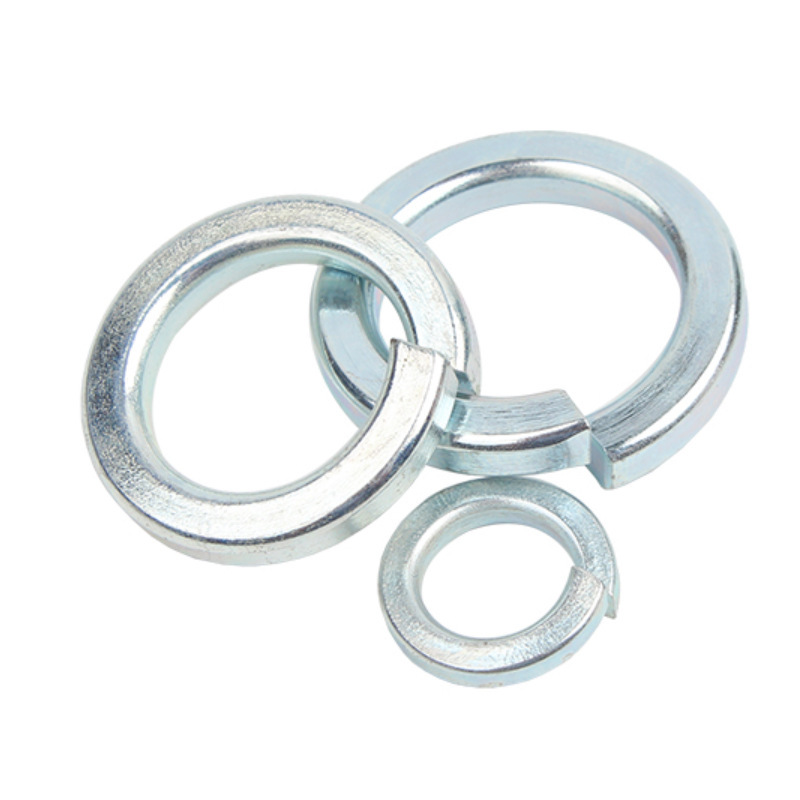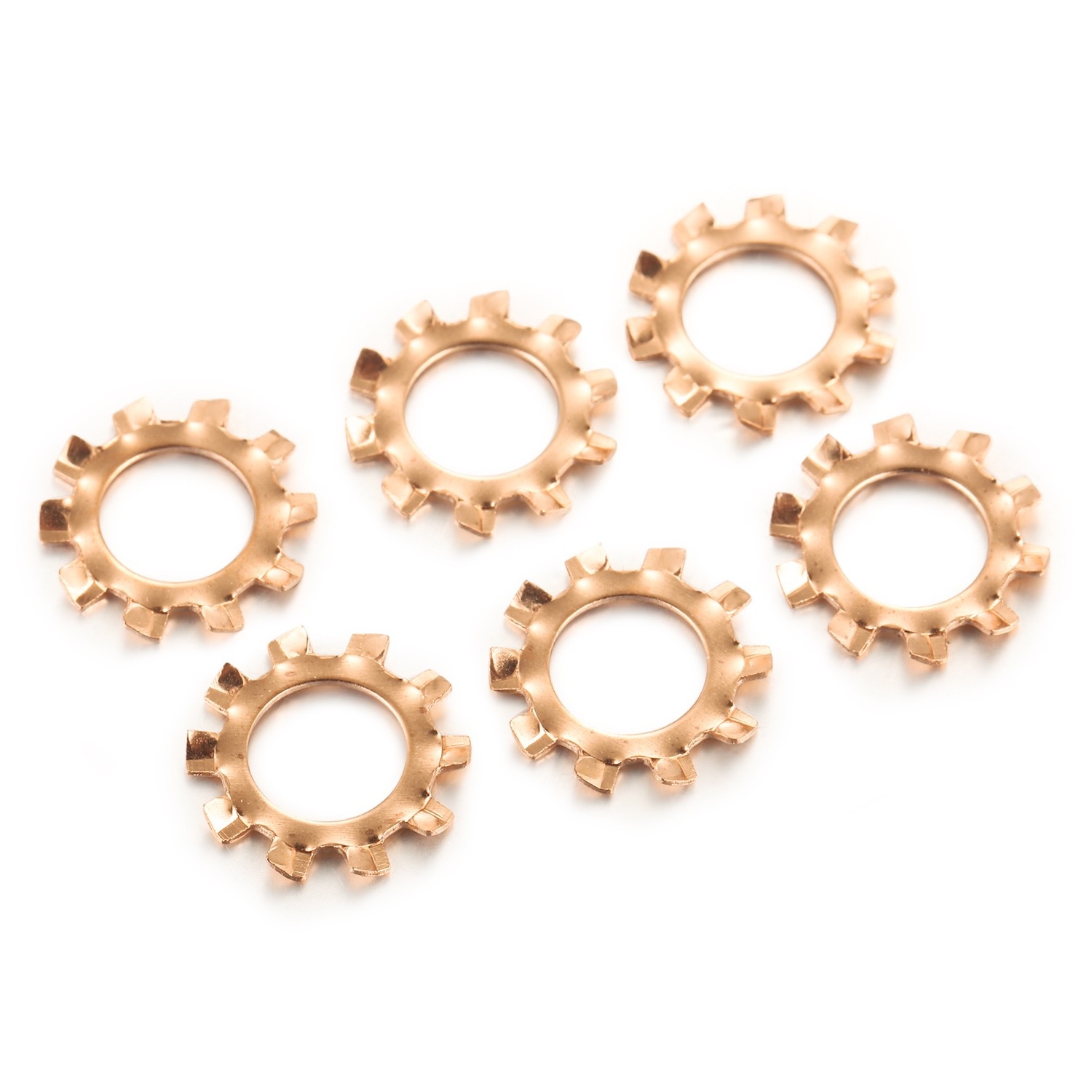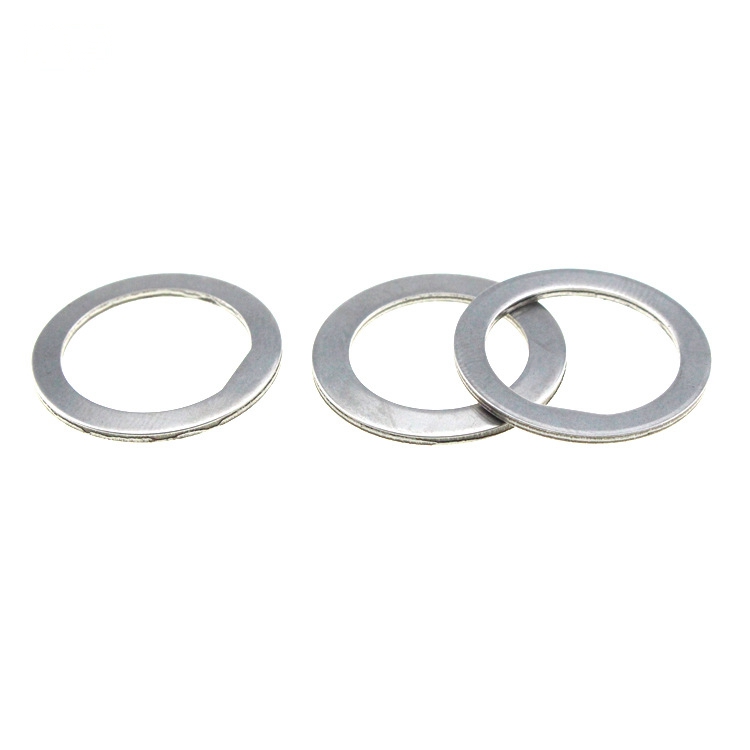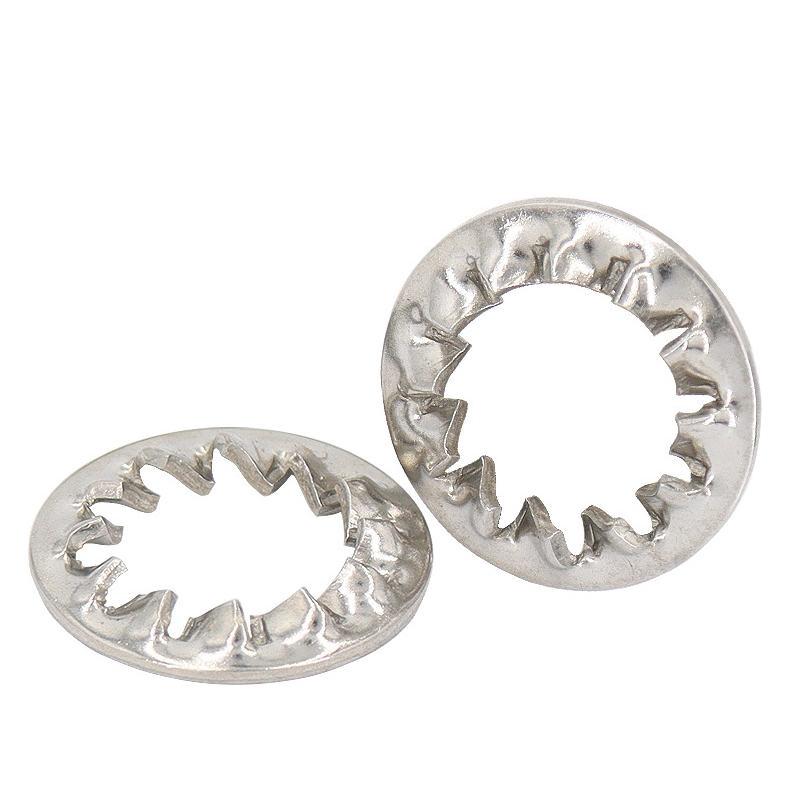Among the many fastener connection methods, bolt connection methods are the most basic and practical together with nuts, screws and other connection methods. Although the bolt connection method is relatively simple in structure, the fastening effect it can achieve is very significant. And in the process of practical application, we often use washers and bolts together to further delay the loosening of bolt connections after long-term work. So what role do washers play in enhancing the anti-loosening effect of bolted connections? The following content will answer this from the aspects of flat washers and spring washers.
1. Flat washers strengthen bolt connections
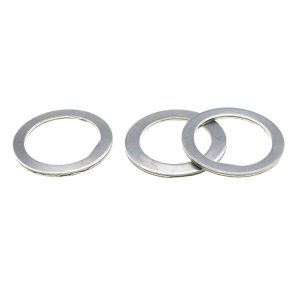
1) First of all, the surface of the flat washer series products is relatively smooth, while the surface of the bolt head and nut is relatively rough. One of the functions of installing the flat washer is to separate the connector from the bolt, which can prevent the connection from being scratched.
2) Reduce the pressure of the bolt on the surface of the connector. In the bolt connection method, tightening the bolt head and nut will generate a certain amount of pressure on the surface of the connector. If the surface pressure resistance of the connector is weak, it is easy to break. At this time, the use of flat washers significantly increases the pressure-bearing area of the connection, and the pressure on the surface of the corresponding connector is significantly reduced, and it will not affect the tightening effect of the bolt connection itself.
3) In some special working scenarios, the bolt holes between the two connectors must correspond exactly, which requires the different sizes of the apertures to compensate for each other. Adjustment deviation. When the bolt hole exceeds the limit, a flat washer is required to ensure the successful connection of the bolt.
4) The length setting of the bolt hole is not fixed. Sometimes, in order to facilitate installation and adjustment, the length of the bolt hole will be longer. At this time, flat washers must be used to assist in the formation of bolt connections. It may even be necessary to purchase customized thickened flat washers or multiple flat washers for stacking and use.
2. The strengthening effect of spring washers on bolt connections
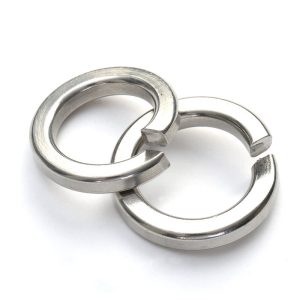
1) Spring washers are mainly used to supplement stress in time when stress relaxation occurs in bolt connections, especially when the clamping length of the selected bolt is short, spring washers must be used for assistance.
2) Spring washers are suitable for situations where the mechanical strength of the bolt itself is not high, and can supplement the stress of the bolt. However, if high-strength bolts are used for fastening connections, it is not suitable to use spring washers at this time. If they are used forcibly, they will have the opposite effect of weakening the anti-loosening effect.
3. Bolt connection without washers
We have roughly understood the specific role of flat washers and spring washers in bolt connections, so in what cases do we not need to use washers?
1) Shear stress bolt connection is a special connection method. The bolts themselves do not need to be given too much pre-tightening force in this fastener connection method, and the bolts will not be affected by axial force after the connection is completed. In addition, the bolt holes suitable for shear stress bolts are relatively small, and the pressure on the surface of the connection is also relatively small. Therefore, washers can be completely omitted in this bolt connection method.
2) When using flange nuts or flange bolts, the flange structure itself has the effect of increasing the area that bears pressure, so there is no need to select additional washers.



